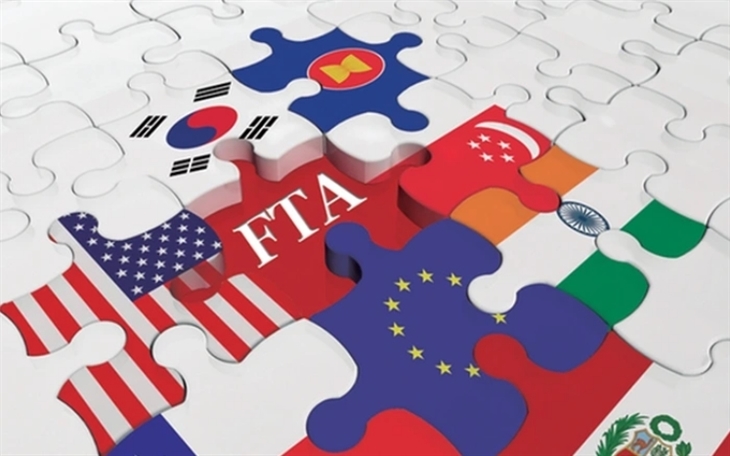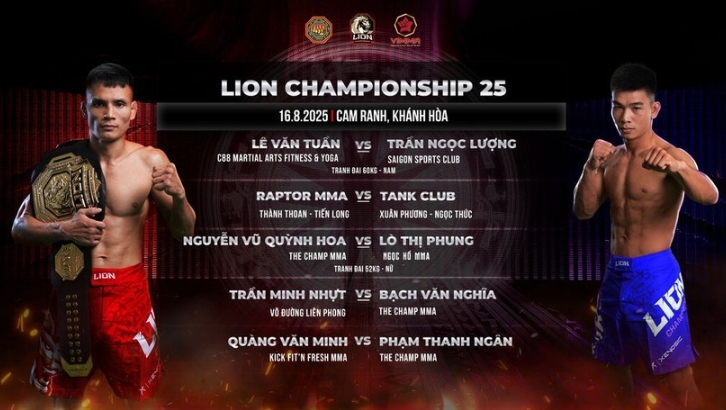Support models for taking advantage of FTAs in the world and lessons for Vietnam
Friday, October 3,2025
AsemconnectVietnam - In the world, many countries have built and implemented models to support businesses in effectively taking advantage of incentives from free trade agreements (FTAs).
Korea - personalized business consulting information
In order to optimize benefits from FTAs and support businesses participating in international trade, Ministry of Industry and Trade is actively coordinating with ministries, branches and localities to conduct surveys and research to build an ecosystem to take advantage of free trade agreements (FTA ecosystem) to better exploit incentives from FTAs, especially new generation FTAs.
It is known that this model has been successfully built by many countries in the world and greatly supports businesses in participating in international trade.
As with the Korean market, this country has built model of Korean FTA Support Center (KCS FTA Support Center).
Established in 2004, Korea Customs Service launched FTA Support Center, providing a one-stop system to support businesses in taking advantage of FTAs. The center includes: A comprehensive portal to help businesses intuitively access various information in process of taking advantage of FTAs; a one-stop agency providing support services for businesses.
Portal provides overview contents such as full text of agreements, HS codes, customs clearance procedures, list of certificates of origin applications. At the same time, it provides early warnings, tools to calculate tariff benefits and self-assess compliance status with regulations on origin.
In addition, support center will provide services such as on-site personalized consultation for businesses on origin, administration, training, and connection with competent students. To implement consulting work for businesses, the center has more than 70 managers to serve a diverse customer portfolio.
FTA Support Center was established to serve all Korean enterprises that have import-export activities and take advantage of FTAs. Enterprises that have used the Center's services include both small and medium-sized enterprises (SMEs) as well as large enterprises.
The greatest value that the Center provides to enterprises is quality of personalized consulting information based on actual needs of each industry and each enterprise. This mechanism helps enterprises to be closely advised by FTA negotiation and implementation experts, solving the two biggest problems of Korean enterprises in FTA implementation: lack of understanding of FTAs and compliance burden.
In addition, online portals on mobile platforms further facilitate Korean enterprises in accessing information, directly connecting with customs officers to resolve problems, proactively self-assess to determine benefits that enterprises receive from FTAs and ability to comply with FTA regulations.
Korean Customs’ investment in resources to upgrade public services and implement FTA implementation strategies is a significant change in the way management agency contacts and supports businesses in FTA utilization activities.
Instead of providing information in a one-way and passive manner, Korean Government proactively approaches businesses to grasp their needs and build support content that is suitable for each party’s requirements.
This public service model benefits both sides as businesses receive high-quality and personalized assistance to their specific needs, while management agency can promote export growth and increase the utilization rate of FTAs.
UK supports SMEs in implementing FTAs
Meanwhile, for UK FTA Utilisation model, Department for Trade and Enterprise (DBT) has established the FTA Utilisation Team to support businesses, especially SMEs, to improve their understanding of benefits of FTAs and access partners in overseas markets.
This administrative unit carries out a number of tasks and activities such as developing FTA implementation guidance documents for SMEs, coordinating with businesses through collecting opinions on issues related to trade facilitation and market penetration, and building capacity for FTA officers and advisors.
As a public administrative unit, activities of FTA Utilisation Team are aimed at UK business community at home and abroad, in which the group of SMEs is a major focus. Businesses can access all the programmes offered by the agency and can contribute to its work through the usual policy dialogue channels. It is managed directly by the Department for Trade and has close links with the UK’s Chief Trade Negotiator and the experts involved in the negotiations.
This gives FTA Enforcement Department the authority to call for support from agencies related to FTA enforcement, centralizing enforcement-related activities into a central government focal point to minimize internal processes and resources for coordination activities.
In addition, ability to mobilize a number of experts with knowledge of agreements and the need for businesses helps to orient communication products, capacity building and market penetration support activities to be closest to the reality of businesses and help businesses grasp the contents of agreements that affect their operations in the clearest and simplest way.
During its membership of European Union, UK government did not negotiate and enforce FTAs itself because this authority was previously held by the European Commission.
Therefore, UK government lacked necessary institutions to conduct negotiations and support implementation process in the most comprehensive way. Establishment of FTA Implementation Department helps Government leaders and Ministry of Trade better direct and monitor the process of support from central agencies to British businesses.
Some lessons for Vietnam
International experiences have pointed out strengths and weaknesses of each model and how to apply them to each specific economic and political context. Overall, Multilateral Trade Policy Department, Ministry of Industry and Trade said that international experiences give Vietnam some general lessons.
First, linkage models help effectively combine the resources of all parties and create symbiotic strength.
In context of FTAs increasingly diverse in content, international trade facing multi-sector issues, solving business problems individually is no longer appropriate.
This reality requires participation of all actors, a fundamental change in the approach to international trade and trade exploitation. In addition to traditional issues such as tariff reduction and trade defense, new obstacles that businesses encounter when taking advantage of FTAs such as market access and supply diversification are related to management agencies, commercial enterprises and service providers at the same time.
Therefore, participation of many actors, especially service providers and other trade solutions, increases value of support solutions, focusing on a single window to help businesses access more easily.
Second, the Government plays a bridging role in creating a comprehensive connection model and maintaining the sustainable operation of a connection model. Close participation of the Government from beginning increases legitimacy of connection model and calls for participation of many stakeholders. Government agencies represent nearly half of number of contacts that need to coordinate to effectively implement connection activities.
Third, ability to integrate multiple services and solutions helps models maintain better connections between subjects and their sustainability. FTA beneficiaries vary in terms of business scale and export markets, so their requirements for solutions are also different.
Models that focus on a few solutions will attract few participants, cooperation framework is also limited and does not have enough flexibility to integrate more at a later stage.
Source: Vitic/ congthuong.vn
In order to optimize benefits from FTAs and support businesses participating in international trade, Ministry of Industry and Trade is actively coordinating with ministries, branches and localities to conduct surveys and research to build an ecosystem to take advantage of free trade agreements (FTA ecosystem) to better exploit incentives from FTAs, especially new generation FTAs.
It is known that this model has been successfully built by many countries in the world and greatly supports businesses in participating in international trade.
As with the Korean market, this country has built model of Korean FTA Support Center (KCS FTA Support Center).
Established in 2004, Korea Customs Service launched FTA Support Center, providing a one-stop system to support businesses in taking advantage of FTAs. The center includes: A comprehensive portal to help businesses intuitively access various information in process of taking advantage of FTAs; a one-stop agency providing support services for businesses.
Portal provides overview contents such as full text of agreements, HS codes, customs clearance procedures, list of certificates of origin applications. At the same time, it provides early warnings, tools to calculate tariff benefits and self-assess compliance status with regulations on origin.
In addition, support center will provide services such as on-site personalized consultation for businesses on origin, administration, training, and connection with competent students. To implement consulting work for businesses, the center has more than 70 managers to serve a diverse customer portfolio.
FTA Support Center was established to serve all Korean enterprises that have import-export activities and take advantage of FTAs. Enterprises that have used the Center's services include both small and medium-sized enterprises (SMEs) as well as large enterprises.
The greatest value that the Center provides to enterprises is quality of personalized consulting information based on actual needs of each industry and each enterprise. This mechanism helps enterprises to be closely advised by FTA negotiation and implementation experts, solving the two biggest problems of Korean enterprises in FTA implementation: lack of understanding of FTAs and compliance burden.
In addition, online portals on mobile platforms further facilitate Korean enterprises in accessing information, directly connecting with customs officers to resolve problems, proactively self-assess to determine benefits that enterprises receive from FTAs and ability to comply with FTA regulations.
Korean Customs’ investment in resources to upgrade public services and implement FTA implementation strategies is a significant change in the way management agency contacts and supports businesses in FTA utilization activities.
Instead of providing information in a one-way and passive manner, Korean Government proactively approaches businesses to grasp their needs and build support content that is suitable for each party’s requirements.
This public service model benefits both sides as businesses receive high-quality and personalized assistance to their specific needs, while management agency can promote export growth and increase the utilization rate of FTAs.
UK supports SMEs in implementing FTAs
Meanwhile, for UK FTA Utilisation model, Department for Trade and Enterprise (DBT) has established the FTA Utilisation Team to support businesses, especially SMEs, to improve their understanding of benefits of FTAs and access partners in overseas markets.
This administrative unit carries out a number of tasks and activities such as developing FTA implementation guidance documents for SMEs, coordinating with businesses through collecting opinions on issues related to trade facilitation and market penetration, and building capacity for FTA officers and advisors.
As a public administrative unit, activities of FTA Utilisation Team are aimed at UK business community at home and abroad, in which the group of SMEs is a major focus. Businesses can access all the programmes offered by the agency and can contribute to its work through the usual policy dialogue channels. It is managed directly by the Department for Trade and has close links with the UK’s Chief Trade Negotiator and the experts involved in the negotiations.
This gives FTA Enforcement Department the authority to call for support from agencies related to FTA enforcement, centralizing enforcement-related activities into a central government focal point to minimize internal processes and resources for coordination activities.
In addition, ability to mobilize a number of experts with knowledge of agreements and the need for businesses helps to orient communication products, capacity building and market penetration support activities to be closest to the reality of businesses and help businesses grasp the contents of agreements that affect their operations in the clearest and simplest way.
During its membership of European Union, UK government did not negotiate and enforce FTAs itself because this authority was previously held by the European Commission.
Therefore, UK government lacked necessary institutions to conduct negotiations and support implementation process in the most comprehensive way. Establishment of FTA Implementation Department helps Government leaders and Ministry of Trade better direct and monitor the process of support from central agencies to British businesses.
Some lessons for Vietnam
International experiences have pointed out strengths and weaknesses of each model and how to apply them to each specific economic and political context. Overall, Multilateral Trade Policy Department, Ministry of Industry and Trade said that international experiences give Vietnam some general lessons.
First, linkage models help effectively combine the resources of all parties and create symbiotic strength.
In context of FTAs increasingly diverse in content, international trade facing multi-sector issues, solving business problems individually is no longer appropriate.
This reality requires participation of all actors, a fundamental change in the approach to international trade and trade exploitation. In addition to traditional issues such as tariff reduction and trade defense, new obstacles that businesses encounter when taking advantage of FTAs such as market access and supply diversification are related to management agencies, commercial enterprises and service providers at the same time.
Therefore, participation of many actors, especially service providers and other trade solutions, increases value of support solutions, focusing on a single window to help businesses access more easily.
Second, the Government plays a bridging role in creating a comprehensive connection model and maintaining the sustainable operation of a connection model. Close participation of the Government from beginning increases legitimacy of connection model and calls for participation of many stakeholders. Government agencies represent nearly half of number of contacts that need to coordinate to effectively implement connection activities.
Third, ability to integrate multiple services and solutions helps models maintain better connections between subjects and their sustainability. FTA beneficiaries vary in terms of business scale and export markets, so their requirements for solutions are also different.
Models that focus on a few solutions will attract few participants, cooperation framework is also limited and does not have enough flexibility to integrate more at a later stage.
Source: Vitic/ congthuong.vn
Wood and wood products exports maintain leading role in agriculture
Great opportunity for Vietnamese seafood exports to Taiwan
Vietnam - Germany trade in first 8 months of 2025
Vietnam had a trade surplus with German market
Vietnam’s textile and apparel exports to the EU: Sustained expansion supported by the EVFTA
Vietnam’s fruit and vegetable exports to the EU: Positive growth driven by EVFTA
Vietnam's seafood exports to the EU have increased sharply thanks to EVFTA
Vietnam–Portugal trade grows strongly thanks to the EVFTA
Vietnam–Netherlands trade exchange grows positively thanks to EVFTA
Imports and exports decreased in first half of September
Vietnam's coffee exports to the EU increased sharply in the first 7 months of 2025 thanks to EVFTA
Vietnam seafood market – September 2025
Vietnam pork market – September 2025
Vietnam petroleum market – September 2025

Plan of Hai Duong province for a period of 2021 - 2030, ...
Organize space reasonably and harmoniously, focusing on connecting Hai Duong in common development space, actively contributing to the ...Plan of Hau Giang province in a period of 2021 - 2030, ...
Sustainable forestry development program in a period of ...

LION Championship 25 to feature title showdowns in Khanh ...
LION Championship 25 will take place at Cam Ranh Square in south-central Khanh Hoa province, at 20:00 on August 16, featuring two of the ...Bai Dinh Pagoda named outstanding destination with ...
Party chief attends special political–art programme “Under ...



